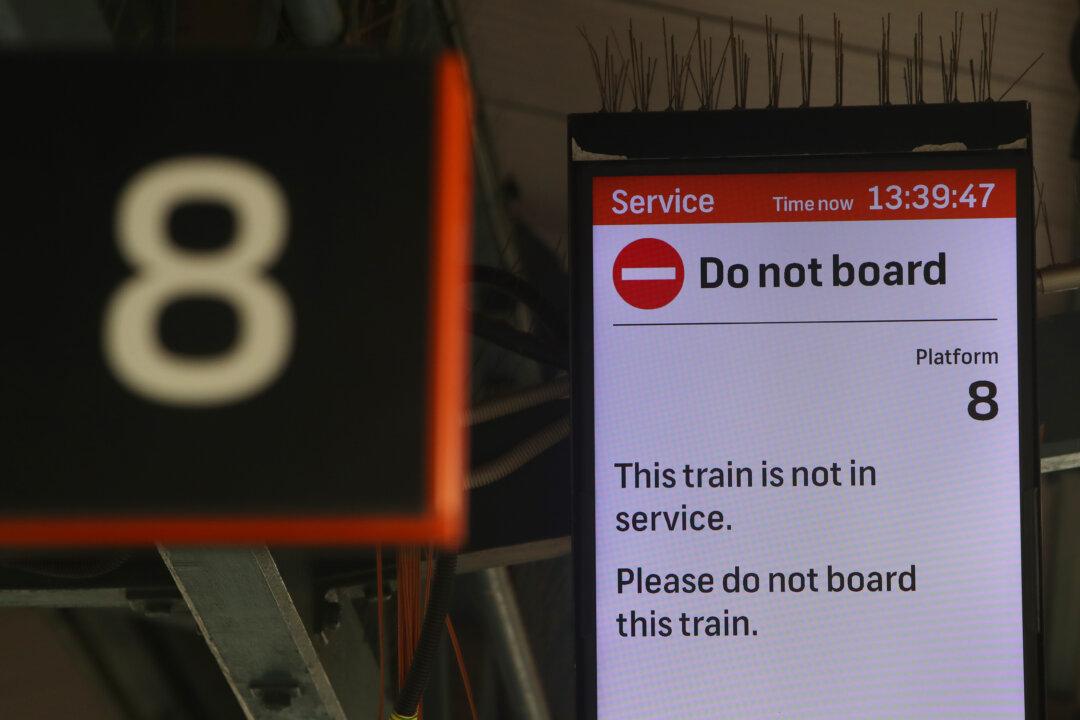Rail unions hamstrung by a court have made a fresh offer aimed at ending an eight-month dispute crippling Australia’s biggest train network.
Most suburban trains ran to timetables on Jan. 17 following the suspension of widespread industrial action across New South Wales’s (NSW) throttled rail system, although extensive delays continued on intercity lines.





